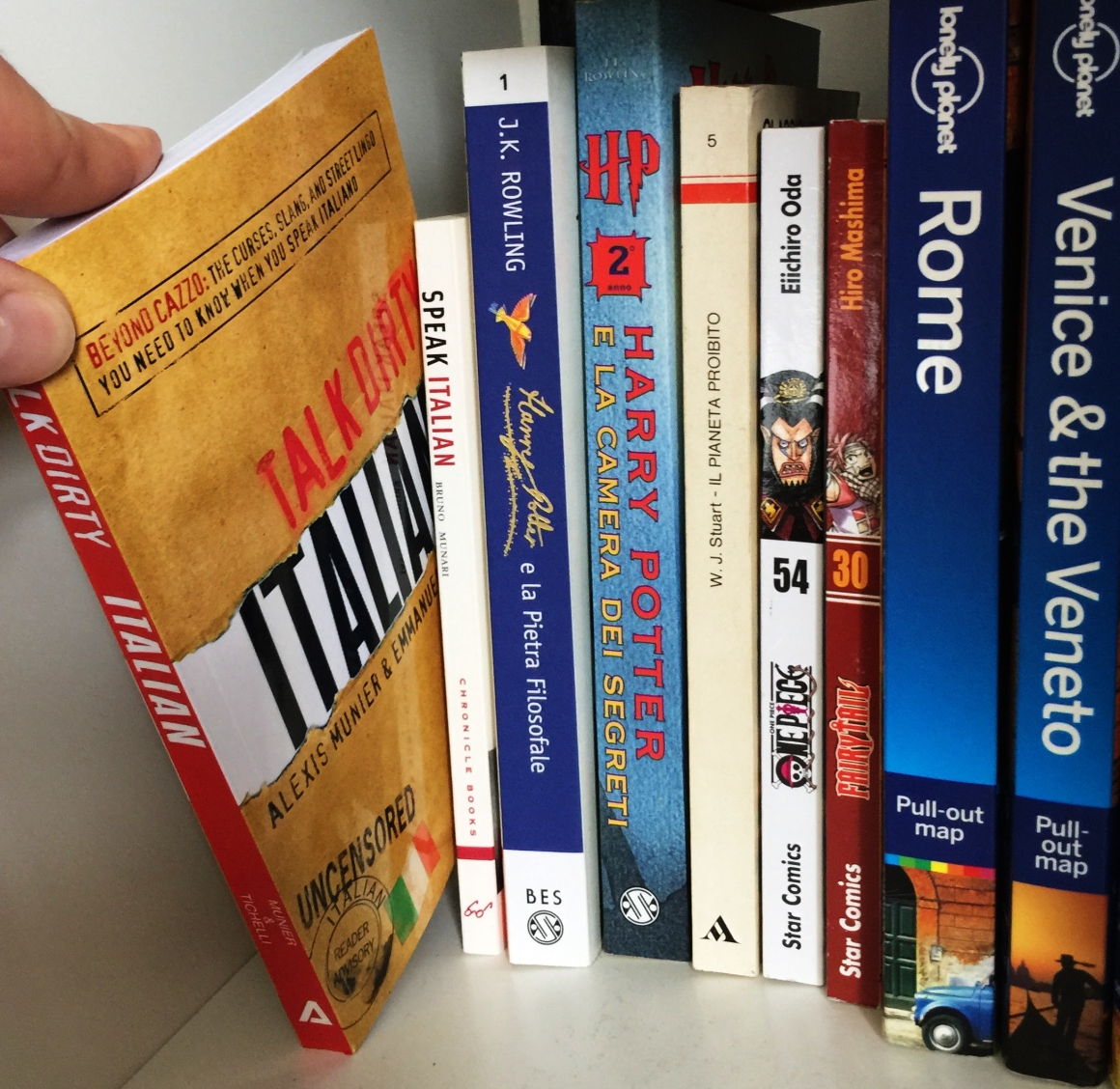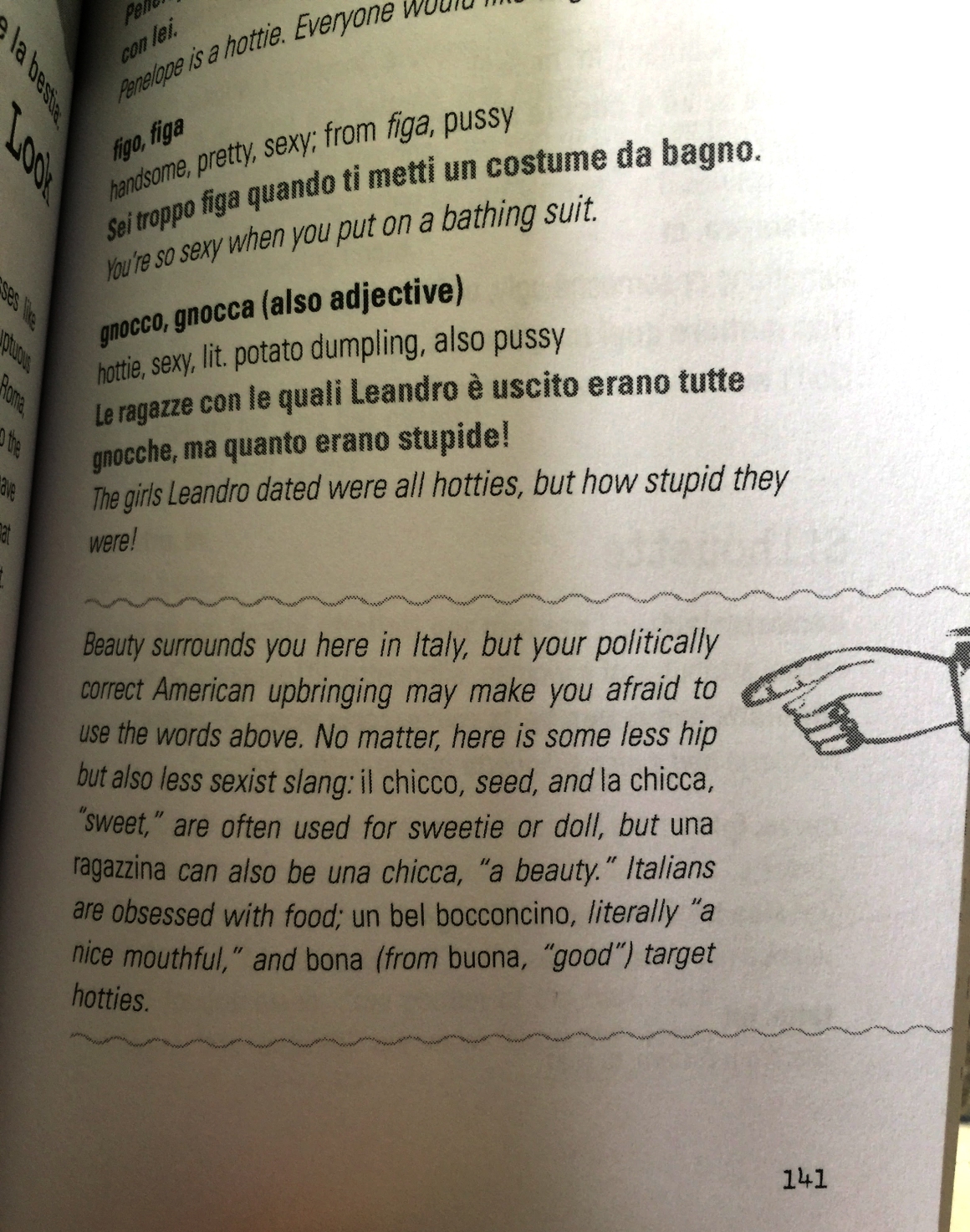After reviewing my copy of Speak Italian last week, I couldn’t resist dusting off another Italian treasure from my little language learning library. This time I have chosen something a little different……

Talk Dirty Italian
When you are learning a new language there are always piles of different textbooks to explain all different types of grammar, syntax and vocabulary but the one thing they rarely cover is slang, idioms and all those naughty words you wouldn’t say in front of your Nonna (Grandmother). Talk Dirty Italian, on the other hand, teaches you everything you will need to chiacchierare (chat) with the Italian’s and fit right in.

From my own experience I have found slang and idioms the hardest thing to learn through conversation as they rarely make literal sense. Take the very popular saying of in bocca al lupo. This means “good luck” in the same way you would say “break a leg” when someone is going to go on stage but the literal meaning won’t help you find this meaning. “In the mouth of the wolf” doesn’t really tell you a lot does it? Well this is where this book becomes a gold mine of information that will unlock a whole other side to your Italian conversations. So rather than hearing a phrase like this, looking confused and having to halt the conversation to get an explanation, you can nod your head in understand and look, and sound, that little bit more Italian.

That is why I love this book! My preferred learning approach is a little eclectic. I prefer to have lots of different books, films, music and information around me that I can choose from, rather than just focusing on one area. This helps keep things interesting and also ensures that I’m getting a good mix of all areas of the language. So when I want a break from listening to Radio Italia (my preferred Italian only music station), or learning to cook some regional speciality on Giallo Zafferano (a brilliant Italian cooking website), I can pick this book up and learn some cool phrases.
Each chapter is focused around a different area of Italian culture so you can just choose one that takes your fancy or you feel will be most useful to you. As food is one of the most important parts of life, and travel, for me the section about food related phrases is one that I read most often.

It is truly amazing how learning a couple of these little phrases can impress your amichi italiani (Italian friends) and make them feel that your understanding of the language, and their culture, is much better; so I personally think this book is invaluable to anyone trying to learn Italian. Although it is not suitable for children learners (unless you don’t mind them learning all the swear words and naughty phrases in two languages) it is perfect for everyone else!
If you can’t resist adding this little gem to your collection follow the link here to Amazon (Uk) to find out more info.

As always, I would love to hear what you think in the comments below and let me know if there are any other books you would like me to review in the future. I am always looking for some new additions to the family.
Ciao for now!



